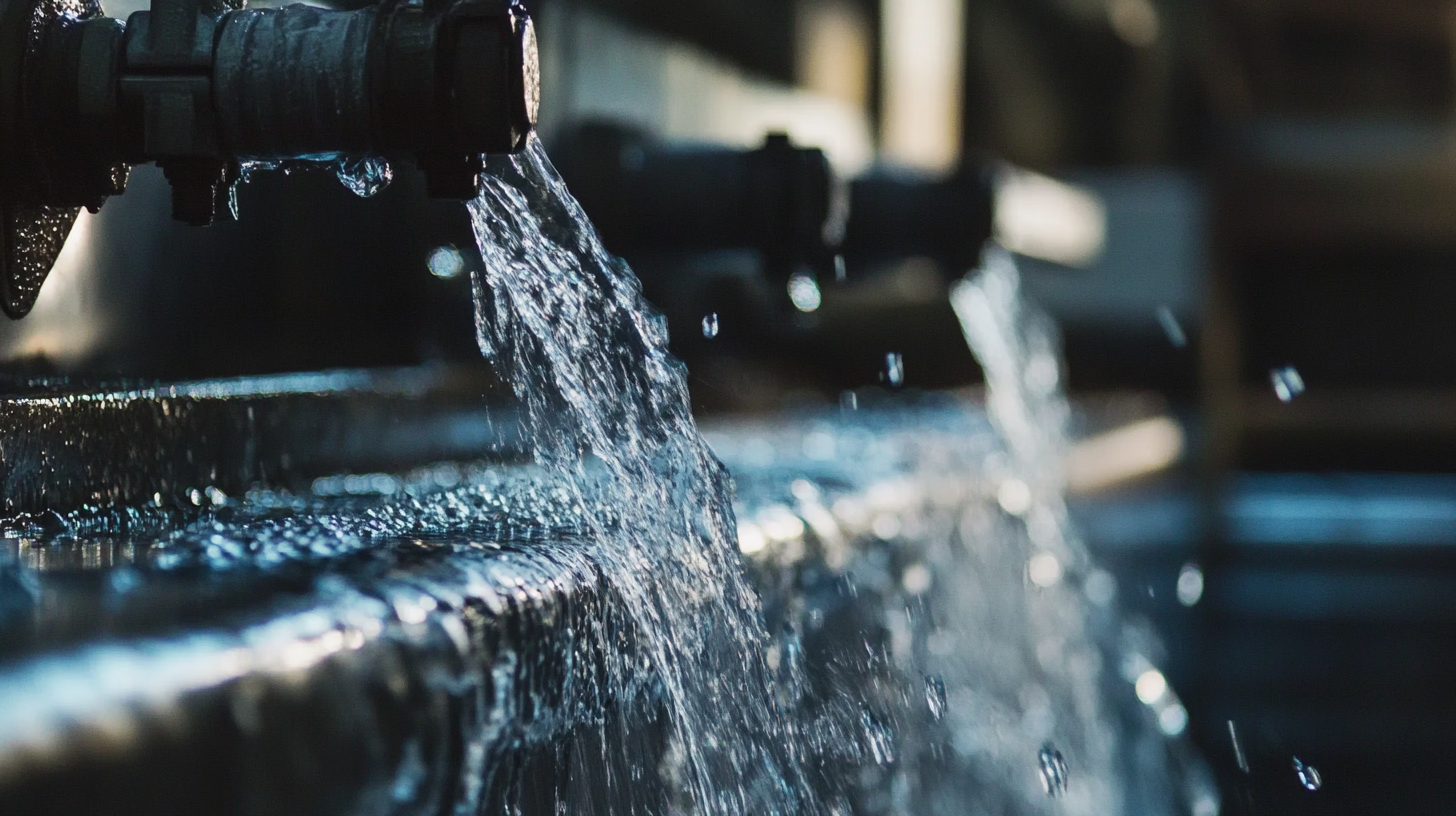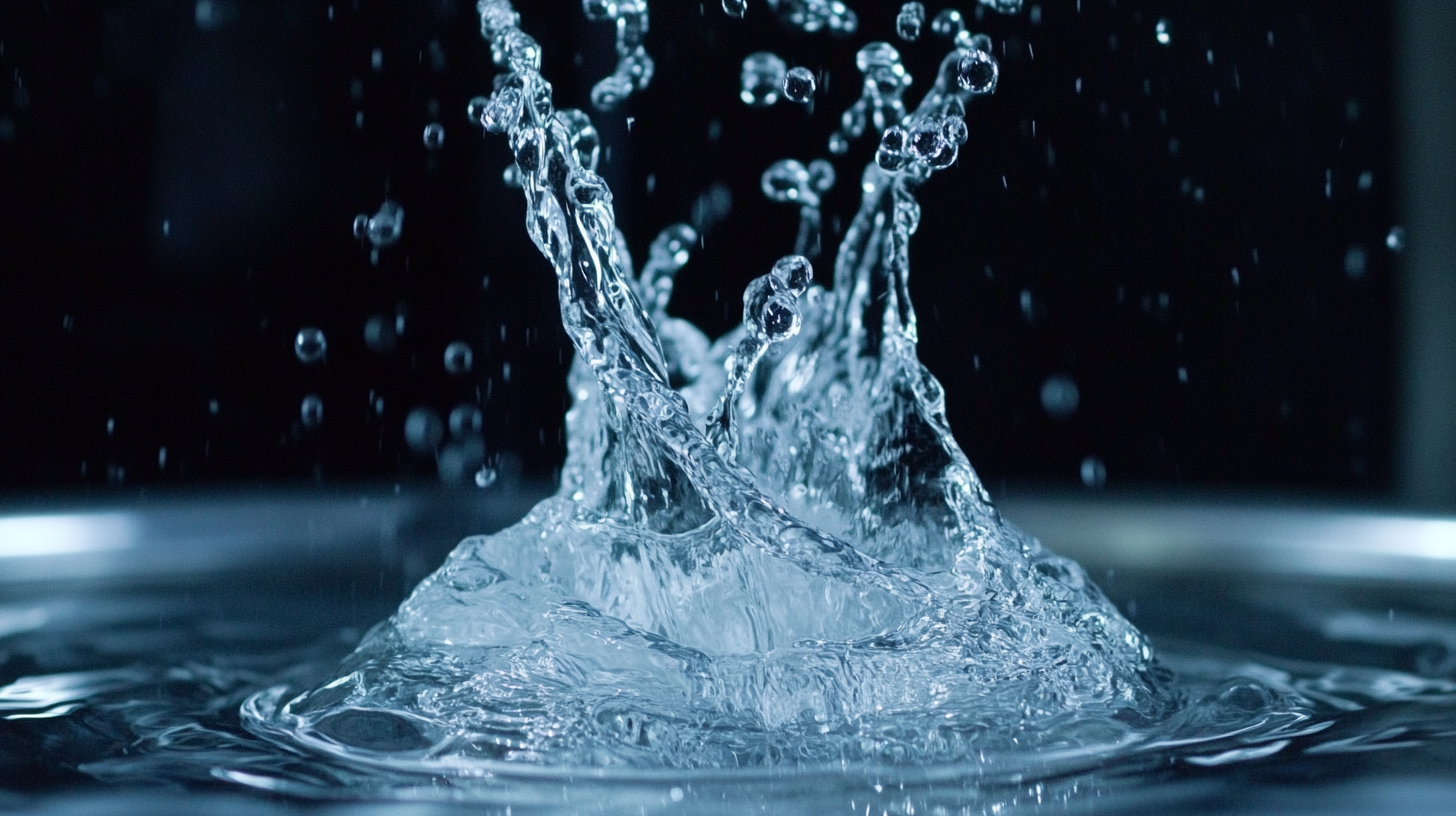
- sales@bjbod.com
- Mon - Sat at 7:00AM to 9:00PM

In the ever-evolving landscape of industrial operations, efficiency stands as a cornerstone of productivity and cost-effectiveness. One emerging innovation that has garnered significant attention is the Compressed Water Remover. Designed to address the challenges posed by excess moisture in various industrial processes, this technology is reshaping how industries tackle water-related inefficiencies. From manufacturing to food processing, the presence of water can lead to operational setbacks, increased downtime, and compromised product quality. However, the advent of Compressed Water Removers offers a targeted solution that not only mitigates these issues but also enhances overall workflow. By extracting moisture efficiently and effectively, this technology allows industries to streamline their processes, reduce waste, and achieve greater sustainability. As we delve deeper into the advantages of Compressed Water Remover, we will explore its transformative impact on industrial applications and the myriad benefits it brings to the table.

In industrial processes, the presence of water can create significant challenges, leading to inefficiencies and potential damage to equipment. Compressed water removal systems have emerged as a pivotal solution, offering a range of key benefits to optimize operations. One of the primary advantages is the ability to enhance product quality. By effectively removing excess water, these systems help maintain the integrity of materials, preventing issues such as corrosion and promoting a consistent production environment.
Another significant benefit of using compressed water removal is the increase in operational efficiency. These systems can dramatically reduce downtime associated with water accumulation and the subsequent need for maintenance. Moreover, the streamlined removal process speeds up production cycles, allowing companies to meet their output targets more effectively. This efficiency not only lowers operational costs but also boosts overall productivity, making it a valuable investment for industries striving for excellence in their manufacturing processes.
Additionally, embracing compressed water removal technologies contributes to environmental sustainability. By minimizing water waste and promoting responsible use of resources, industries can align their operations with eco-friendly practices. As businesses face growing pressure to adopt sustainable measures, efficient water management through compressed removal systems can significantly enhance their reputation and contribute to a greener future.
| Benefit | Description | Impact on Efficiency |
|---|---|---|
| Time Savings | Reduces the time required for water removal after industrial cleaning processes. | Increases production speed, minimizing downtime. |
| Cost Efficiency | Less water consumption means lower utility costs. | Decreases operational costs significantly over time. |
| Improved Quality | Helps maintain the quality of products by ensuring thorough drying. | Enhances product reliability and customer satisfaction. |
| Environmental Impact | Reduces the discharge of excess water into the environment. | Contributes to sustainable industrial practices. |
| Versatility | Applicable in various industrial settings including manufacturing and maintenance. | Broadens the scope of application, enhancing overall operational flexibility. |
Compressed Water Remover (CWR) is rapidly becoming an essential tool in industrial applications, significantly enhancing operational efficiency. According to a recent report by the Industrial Water and Energy Management Association, industries that implement CWR technology can reduce water consumption by up to 30%. This not only leads to lower water costs but also optimizes the use of energy required for heating and cooling processes, contributing to more sustainable operations.
Moreover, CWR systems effectively remove excess moisture from various products without compromising their integrity. A study from the Global Manufacturing Insights predicts that businesses utilizing compressed water removal techniques can improve product quality by 25%, as moisture content is a critical factor influencing durability and performance. This improvement in product quality directly translates to enhanced customer satisfaction and reduced returns, further boosting profitability.
Additionally, the Environmental Protection Agency highlights that efficient water management practices, including the use of CWR, can help companies meet regulatory compliance. With the increasing regulatory pressure on water usage, industries adopting compressed water technology not only ensure operational excellence but also position themselves favorably within the market. By integrating CWR systems, businesses can achieve greater efficiency, reduce waste, and align with sustainability initiatives, ultimately driving their success in today’s competitive industrial landscape.

Compressed water removers have emerged as a game-changer across various industries, significantly enhancing operational efficiency. In manufacturing, such devices are essential for removing moisture from products and machinery, thereby preventing rust and improving the longevity of equipment. For instance, in the automotive industry, the removal of water from components before coating ensures a better finish and adhesion, crucial for durability and visual appeal.
In the food processing sector, compressed water removers play a vital role in maintaining hygiene and quality. They assist in drying equipment and surfaces rapidly, reducing the risk of bacterial growth and contamination. This is particularly important in environments where water residue can spoil products or compromise safety standards. Furthermore, in the construction industry, these tools are invaluable for drying wet surfaces quickly, allowing for timely progress and reducing downtime that could result from adverse weather conditions.
The use of compressed water removers not only streamlines processes but also contributes to sustainability. By efficiently eliminating excess water, businesses reduce waste and energy consumption, aligning with modern ecological practices. As industries continue to seek innovative solutions, compressed water removers are set to play a crucial role in enhancing productivity and operational excellence.

In the fast-paced world of industrial applications, efficiency is paramount. One of the innovative tools gaining traction is the compressed water remover. This technology not only enhances productivity but also leads to significant cost savings for businesses. By utilizing high-pressure air systems, compressed water removers effectively eliminate excess moisture from various surfaces, optimizing the drying process in manufacturing and maintenance tasks. This rapid removal of water allows operations to be completed more quickly, minimizing downtime and increasing overall throughput.
Implementing compressed water removal systems can drastically reduce labor costs associated with manual drying methods. Traditional machines often require extensive workforce involvement and time, resulting in higher operational expenses. Conversely, by automating the drying process with compressed air technology, companies can streamline their workflow and reallocate valuable human resources to more critical tasks. Ultimately, the switch to compressed water removers not only lightens the labor burden but also translates into enhanced output and increased revenue, showcasing a clear path towards operational excellence in industrial settings.
In the realm of industrial applications, the quest for enhanced efficiency often leads to the adoption of innovative technologies. One such breakthrough is the development of compressed water removal solutions, which have revolutionized the way industries manage moisture. These advanced systems are designed to swiftly eliminate excess water from various processes, ensuring optimal performance and longevity of machinery. By harnessing the power of compression, these technologies significantly reduce downtime and maintenance costs associated with water damage.
The advantages of using compressed water removers extend beyond mere efficiency. These systems not only expedite the drying process but also contribute to improved product quality and operational sustainability. Industries that rely on precision manufacturing, such as automotive and aerospace, benefit immensely from maintaining strict moisture control. Furthermore, with advancements in automation and IoT integration, modern compressed water removal solutions offer real-time monitoring and adaptability, allowing businesses to respond dynamically to changing conditions and maintain peak productivity levels. As companies continue to seek innovative ways to enhance their operations, compressed water removal technology stands out as a pivotal investment for the future.